
The head of a European investigation into alleged CIA secret prisons in Europe said Tuesday that evidence pointed to the existence of a system of "outsourcing" of torture by the United States, and that it was highly likely European governments were aware of it.
But Swiss Sen. Dick Marty said there was no tangible proof so far of the existence of clandestine centers in Romania or Poland as alleged by the New York-based Human Rights Watch, and complained of a lack of cooperation by EU governments.
His interim report, based partly on results of national investigations and recent press reports, did not break new ground and largely repeated his previous claims that U.S. policies in the war on terror contravene international law on human rights. Allegations that the CIA hid and interrogated key al-Qaida suspects at Soviet-era compounds in Eastern Europe were first reported Nov. 2 in The Washington Post.
"There is a great deal of coherent, convergent evidence pointing to the existence of a system of "relocation" or "outsourcing" of torture," Marty said in the report to the Council of Europe, the human rights watchdog on whose behalf he is investigating.
"Acts of torture or severe violation of detainees' dignity through the administration of inhuman or degrading treatment are carried outside national territory and beyond the authority of national intelligence services," Marty said. He added that more than 100 suspects may have been transferred to countries where they faced torture or ill treatment in recent years.
"The entire continent is involved," Marty told the Council of Europe's parliamentary assembly, a body comprising several hundred national lawmakers. "It is highly unlikely that European governments, or at least their intelligence services, were unaware."
In his report, Marty analyzed the cases of an Egyptian cleric allegedly kidnapped from Milan, Italy, in 2003 by CIA agents and a German captured in Macedonia and taken to Afghanistan in an apparent case of mistaken identity.
Citing an American lawyer, Marty also said six Bosnians were abducted by U.S. agents on Bosnian soil and taken to Guantanamo Bay, despite a Bosnian court ruling ordering their release.
Last week, Italy's justice minister formally asked the United States to allow Italian prosecutors to question 22 purported CIA operatives they accuse of kidnapping the Egyptian cleric, Osama Moustafa Hassan Nasr, in 2003 from a Milan street.
Nasr, believed to belong to an Islamic terror group, was seized Feb. 17, 2003. Prosecutors claim the cleric, who is also known as Abu Omar, was taken by the CIA to a joint U.S.-Italian air base, flown to Germany and then to Egypt, where he says he was tortured.
Marty also said he would follow up on evidence gathered in the case of Khaled al Masri, a German of Lebanese origin reportedly kidnapped from Germany to Afghanistan, in the next stage of his investigation.
Marty, who is expected to issue another interim report in the next few months, complained there was enormous pressure on him to produce evidence of secret CIA prisons but there was not much help from the Council of Europe or governments.
"Not a single day passes without me being asked, 'Do you have any hard evidence, is there any proof?'" he said. "I am not a judicial authority, I have no means of investigation, the logistical support available to me is very limited."
The European Union's top justice official, Franco Frattini, called on all EU governments Tuesday to "fully cooperate" with the investigators.
The Council of Europe launched its probe after allegations surfaced in November that U.S. agents interrogated key al-Qaida suspects at clandestine prisons in eastern Europe and transported some suspects through Europe to other countries.
Human Rights Watch identified Romania and Poland as possible sites of secret U.S.-run detention facilities. Both countries have denied involvement. Clandestine detention centers would violate European human rights treaties.
Marty said there was no irrefutable evidence of the existence of secret CIA prisons in Romania, Poland or any other country.
"On the other hand, it has been proved that individuals have been abducted, deprived of their liberty and all rights and transported to different destinations in Europe, to be handed over to countries in which they have suffered degrading treatment and torture," he said. If eventually uncovered, the detention centers would likely be small cells that could be easily hidden, he added.
Marty has obtained flight logs archived by the Brussels-based air safety organization Eurocontrol and satellite images of air bases in Romania and Poland.
Source :
here
 A British soldier has died in a blast in southern Iraq - the 100th UK forces fatality since the 2003 invasion. The soldier, from the 7th Armoured Brigade, died as result of injuries sustained after a blast in Umm Qasr in Basra province, the UK government said.
A British soldier has died in a blast in southern Iraq - the 100th UK forces fatality since the 2003 invasion. The soldier, from the 7th Armoured Brigade, died as result of injuries sustained after a blast in Umm Qasr in Basra province, the UK government said.









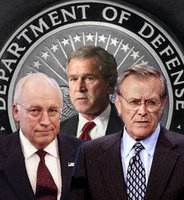

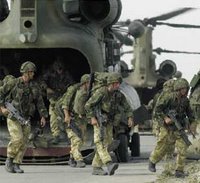

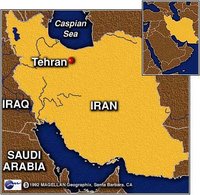
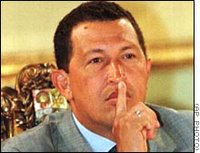







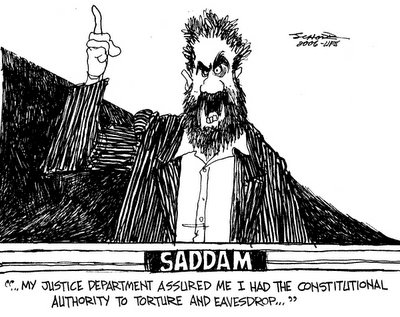




 Personally I have quite a number of doubts about the latest Bin Laden tape. If you remember there was the independent research that was carried out in 2002 on one of these 'CIA confirmed' tapes that showed it almost certainly to be a
Personally I have quite a number of doubts about the latest Bin Laden tape. If you remember there was the independent research that was carried out in 2002 on one of these 'CIA confirmed' tapes that showed it almost certainly to be a 














